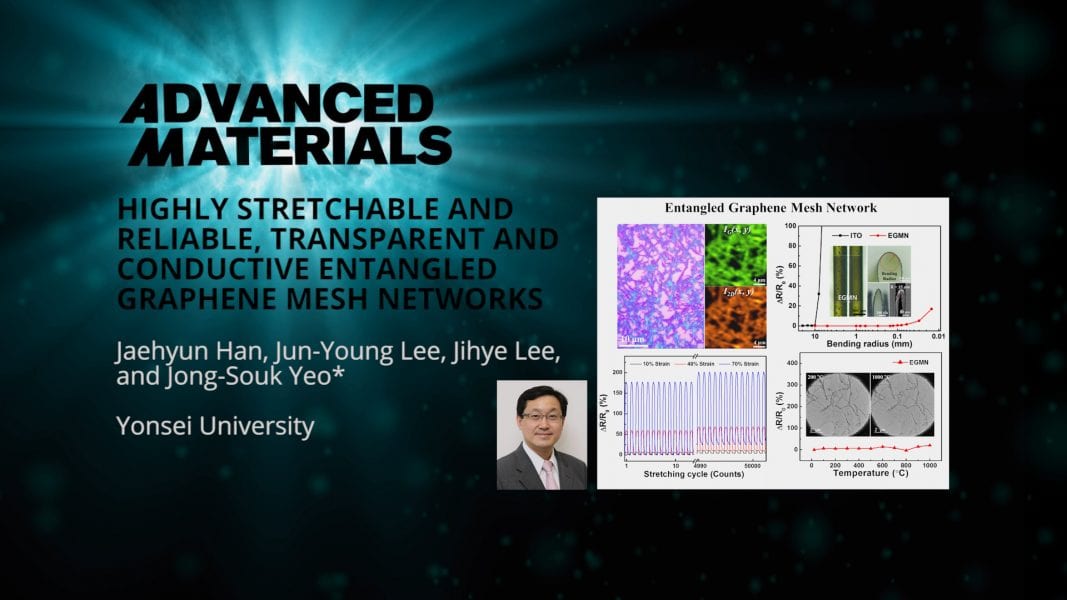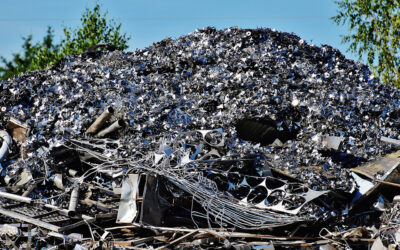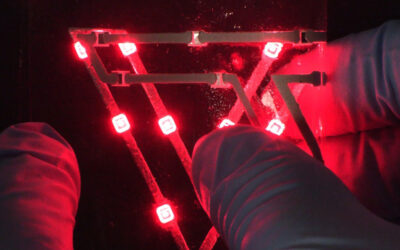User-oriented soft electronics—including flexible displays and integrated healthcare devices—are increasingly in demand, but developing soft electronics that are flexible, stretchable, transparent, and lightweight while achieving mechanical, thermal, and environmental robustness is a challenge.
In their communication in Advanced Materials, Jong-Souk Yeo and co-workers from Yonsei University in South Korea demonstrate a highly stretchable, transparent, conductive entangled graphene mesh network (EGMN) that is electrically reliable, mechanically durable, and thermally stable, even in harsh environmental conditions.
Graphene is grown on a copper substrate using chemical vapor deposition, then directly immersed in an etchant solution. Micrometer-sized holes form in the copper substrate, exposing the unsupported graphene and causing it to wrinkle and crumple along the hole-edges.
The floating EGMNs are transferred onto various substrates including silicon dioxide, quartz, bendable polyimide, and stretchable latex. Micrometer-sized graphene is intermixed with the EGMN, providing strong adhesion to the substrate and enhancing its durability.
The coverage density of EGMNs on a quartz substrate is tuned by applying a biaxial compressive strain. Increasing the compressive strain reduces the transparency while increasing the electrical properties. Treating EGMN samples with nitric acid reduces the sheet resistance, and hence improves electrical conductance.
EGMN on a polyimide substrate is folded to analyze its bending durability. After 100,000 cycles of bending to a radius of 2 mm, the EGMN maintains its initial electrical resistance and changes by only about 20% when fully folded.
EGMN on a latex substrate is then stretched using a flexural endurance tester. A steady monotonic response in resistance is observed for strain cycling of 50 000 times with nearly constant gauge factors of 0.76, 1.67, and 2.55 at 10%, 40%, and 70% strains, respectively. Moreover, EGMN on a silicon dioxide substrate has negligible change in resistance from 100 to 1000 °C. Similarly, samples show long-term stability in a temperature–humidity chamber at 70 °C and 70% relative humidity for 30 days.
To find out more about this novel entangled graphene mesh network, please visit the Advanced Materials homepage.

















